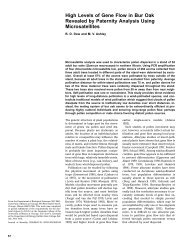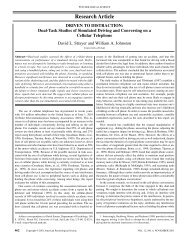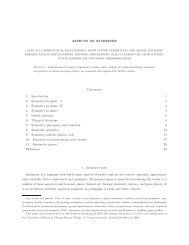Repeating Lenin by Slavoj Zizek
Repeating Lenin by Slavoj Zizek
Repeating Lenin by Slavoj Zizek
You also want an ePaper? Increase the reach of your titles
YUMPU automatically turns print PDFs into web optimized ePapers that Google loves.
<strong>Repeating</strong> <strong>Lenin</strong> <strong>by</strong> <strong>Slavoj</strong> <strong>Zizek</strong><br />
9/20/11 2:53 PM<br />
art, with the hidden assurance that one is somehow retaining the link with the radical<br />
revolutionary past... With regard to this radical chic, the first gesture towards the Third Way<br />
ideologists and practitioners should be that of praise: they at least play their game in a straight<br />
way, and are honest in their acceptance of the global capitalist coordinates, in contrast to the<br />
pseudo-radical academic Leftists who adopt towards the Third Way the attitude of utter disdain,<br />
while their own radicality ultimately amounts to an empty gesture which obliges no one to<br />
anything determinate.<br />
It is true that, today, it is the radical populist Right which is usually breaking the (still)<br />
predominant liberal-democratic consensus, gradually rendering acceptable the hitherto excluded<br />
topics (the partial justification of Fascism, the need to constrain abstract citizenship on behalf of<br />
ethnic identity, etc.). However, the hegemonic liberal democracy is using this fact to blackmail<br />
the Left radicals: “we shouldn’t play with fire: against the new Rightist onslaught, one should<br />
more than ever insist on the democratic consensus — any criticism of it willingly or unwillingly<br />
helps the new Right!” This is the key line of separation: one should reject this blackmail, taking<br />
the risk of disturbing the liberal consensus, up to questioning the very notion of democracy.<br />
So how are we to respond to the eternal dilemma of the radical Left: should one strategical<br />
support center-Left figures like Bill Clinton against the conservatives, or should one adopt the<br />
stance of “it doesn’t matter, we shouldn’t get involved in these fights — in a way, it is even<br />
better if the Right is directly in power, since, in this way, it will be easier for the people to see<br />
the truth of the situation"? The answer is the variation of old Stalin’s answer to the question<br />
“Which deviation is worse, the Rightist or the Leftist one?": THEY ARE BOTH WORSE. What<br />
one should do is to adopt the stance of the proper dialectical paradox: in principle, of course, one<br />
should be indifferent towards the struggle between the liberal and conservative pole of today’s<br />
official politics — however, one can only afford to be indifferent if the liberal option is in<br />
power. Otherwise, the price to be paid may appear much too high — recall the catastrophic<br />
consequences of the decision of the German Communist Party in the early 30s NOT to focus on<br />
the struggle against the Nazis, with the justification that the Nazi dictatorship is the last<br />
desperate stage of the capitalist domination, which will open eyes to the working class,<br />
shattering their belief in the “bourgeois” democratic institutions. Along these lines, Claude<br />
Lefort himself, whom no one can accuse of communist sympathies, recently made a crucial<br />
point in his answer to Francois Furet: today’s liberal consensus is the result of 150 years of the<br />
Leftist workers’ struggle and pressure upon the State, it incorporated demands which were 100<br />
or even less years ago dismissed <strong>by</strong> liberals as horror.3 As a proof, one should just look at the<br />
list of the demands at the end of the Communist Manifesto: apart from 2 or 3 of them (which, of<br />
http://www.marxists.org/reference/subject/philosophy/works/ot/zizek1.htm<br />
Page 4 of 57

















